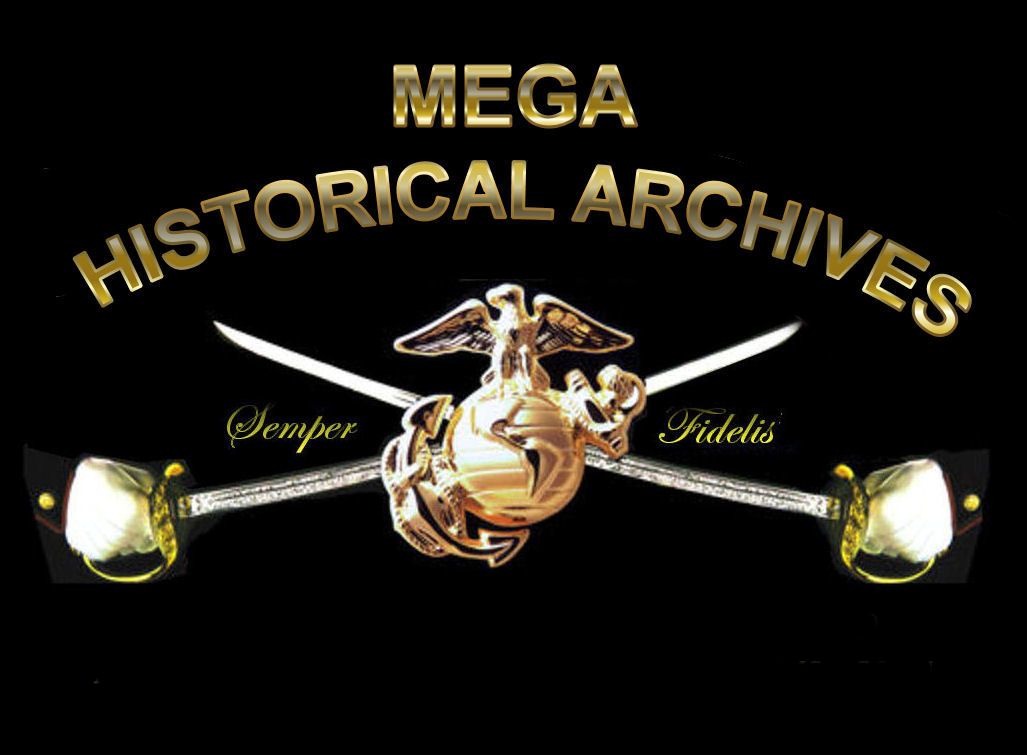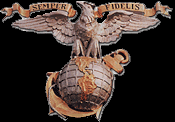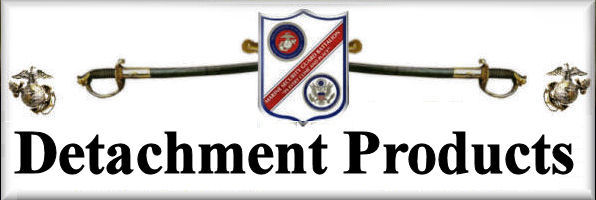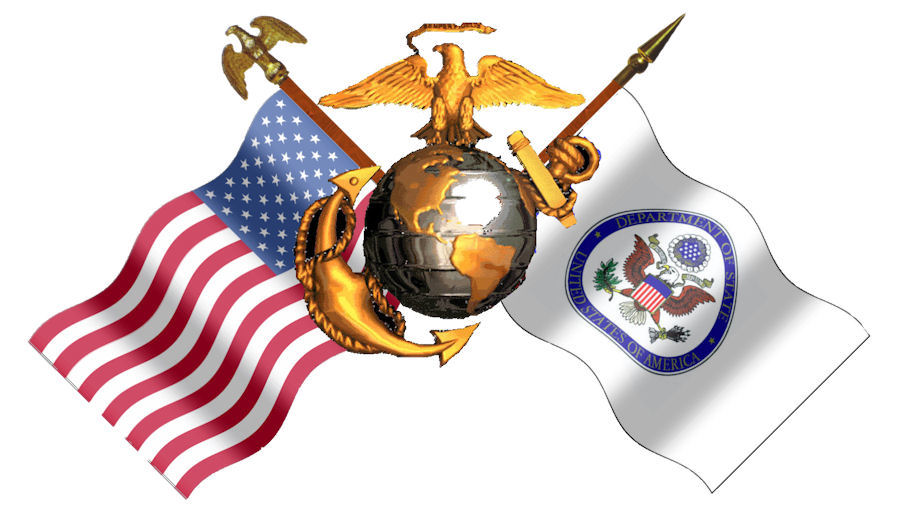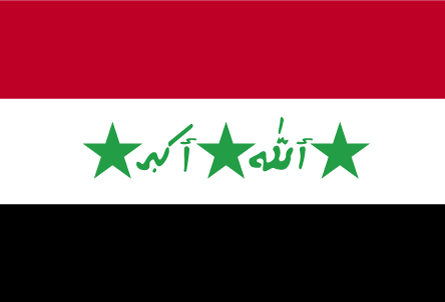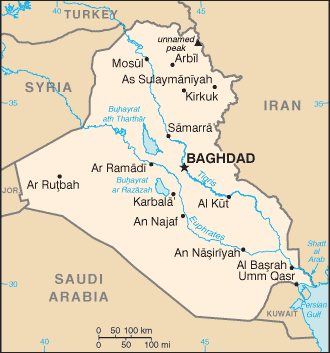| 2010 |
|
|
| 2009 |
|
|
| 2008 |
|
| Ambassador: Ryan Crocker |
Company Commander:
Detachment Commander:
Watchstanders:
|
|
|
| 2007 |
|
| Ambassador: Ryan Crocker |
Company Commander:
Detachment Commander:
Watchstanders:
|
|
|
| 2006 |
|
| Ambassador: Zalmay Khalilzad |
Company Commander:
Detachment Commander:
Watchstanders:
|
|
|
| 2005 |
|
| Ambassador: Zalmay
Khalilzad |
Company Commander:
Detachment
Commander:
Watchstanders:
|
| MSG
Cedric Pippen wounded
in roadside bombing |
Jan:
elections for the transitional National Assembly,
the United Iraqi Alliance,
- Shiite coalition supported by Ayatollah Sistani
, won nearly half the vote,
- Kurdish alliance took more
than a quarter.
- Sunni participation in the vote was, in most areas,
very low as a result of boycott and intimidation, leading some - Sunni
clerics to denounce the balloting as illegitimate.
- Shiite and
Kurdish coalitions form an alliance, but it was not until
early April that the choices for the main national leadership posts
were finalized.
Hajim al-Hassan (Sunni),Speaker of the
National Assembly;
Jalal Talabani, (Kurd) President;
Ibrahim al-Jaafari, (Shia) Prime Minister. |
|
| 2004 |
|
| Ambassador: |
Company Commander:
Detachment
Commander:
Watchstanders:
|
Flag
Raising during
US Embassy opening ceremonies
January:
U.S. arms inspectors reported that they had found no
evidence of Iraqi chemical or biological weapons stockpiles prior to
the U.S. invasion; the asserted existence of such stockpiles had been a
main justification for the invasion.
US
Senate
investigation criticized the CIA for providing faulty information and
assessments concerning Iraq's weapons.
March:
An interim
constitution was signed by the Governing Council
-
Sunni insurgents in Falluja attacked a convoy of U.S. civilian
security
forces, killing four and desecrating the corpses,
-
U.S.
crackdown on Falluja, a center of Sunni insurgency.
April:
Fighting in Falluja resulted in the most significant
casualties since since the
end of the invasion;
-
Falluja conflict ended with the insurgents largely in
place.
-
U.S. moves against the organization of a
radical Shiite cleric, Moktada al-Sadr, led him to call for an
uprising. There was unrest in a number of cities in S central and S
Iraq, but by mid-April al-Sadr's forces were in control only in the
area around An Najaf, a city holy to Shiites, and a cease-fire took
effect in June.
June:
United Nations
endorsed the reestablishment of Iraqi sovereignty,
-
Iyad Allawi
, a Shiite, became prime minister
- Sheik
Ghazi Ajil al-Yawar, a
Sunni, became president
-
Interim constitution took effect.
-
Saddam
Hussein and 11 other former high-ranking Iraqi officials were formally
turned over to the new government and were arraigned.
July: U.S.
sanctions
ended,
Aug:
Large-scale
fighting with al-Sadr's militia (centered on An Najaf
and, to a lesser degree, Sadr City, a Shiite
section of Baghdad, Militia subsequently abandoned An Najaf and
fighting ceased.
-
a 100-member National
Council established - responsible for overseeing the interim
government and
preparing for elections in 2005.
October:
al-Sadr shifted to converting his
movement into a political force.
-
U.S. inspectors
concluded i that although Hussein never abandoned his goal
of acquiring nuclear weapons, Iraq had halted its nuclear program after
the first Persian Gulf War. U.S. quietly abandoned their search for
weapons of mass destruction by the end of 2004.
Fall
2004:
(Central Iraq), , U.S. forces began operations to
establish control of Sunni areas
November:
U.S.
forces regained control of Falluja
Estimates
of the insurgents'
numbers, including foreign guerrillas, ranged from 8,000 to 12,000;
December:
by
the end of 2004 the most violent anti-U.S., anti-interim government
fighters were Sunni forces, which were increasingly dominated by
Islamic militants.
Ongoing
violence in Iraq continued to hamper
reconstruction, as a lack of security hindered rebuilding and security
needs diverted money away from rebuilding. |
|
2003
|
|
| Ambassador: |
Company Commander:
Detachment
Commander:
Watchstanders:
|
January,
UN
inspectors had found no evidence of
forbidden weapons programs, but they also indicated that Iraq was not
actively cooperating with their efforts to determine if previously
known or suspected weapons had been destroyed and weapons programs had
been ended.
March:
Continued
U.S.-British insistence on complete Iraqi cooperation
with
the UN inspections, and continued Iraqi resistance to doing so, led the
United States and Britain to demand that Hussein step down
or face an invasion.
-
Mar. 19, 2003, the Anglo-American
attack began
with an airstrike aimed at Hussein personally.
-
Sizable ground forces
began invading the following day, surging primarily toward Baghdad, the
southern oil fields, and port facilities;
- a
northern front was opened
by Kurdish and Anglo-American forces late in March.
-After
less than a
month of fighting, Hussein's rule had collapsed, and U.S. and British
forces were established in major urban areas.
-
Hussein survived the war and went into hiding,
- guerrilla
attacks by
what were believed to be Ba'ath loyalists and Islamic militants became
an ongoing problem in the following months, largely in Sunni-dominated
central Iraq.
-
The Kurdish-dominated north and Shiite-dominated south
were generally calmer.
L.
Paul Bremer
3d was appointed as civilian head of the occupation.
May:
UN economic
sanctions were lifted
July:
U.S. sanctions were
not ended, , and in mid-July an interim
Governing
Council consisting of representatives of Iraqi opposition groups was
established. Nonetheless, civil order and the economy were restored at
a slow pace. The cost for rebuilding Iraq was estimated by Bremer in
late 2003 to be as much as $100 billion over three years.
IRAQ:
Suddam
Husseins sons killed in Raid (July 22)
-
End-of-2003: Revelations in May
of
U.S. abuse of Iraqi
prisoners at Abu Ghraib
prison sparked widespread dismay and
outrage in Iraq,
-
President of the Governing Council was assassinated
October: UN
Security
Council passed a British-American
resolution calling for a timetable for self-rule in Iraq to be
established by mid-December.
November:
United
States speeds up the
process, Governing Council endorsed a
U.S.-proposed plan that called for self-rule in mid-2004 under a
transitional assembly, which would be elected by a system of caucuses.
-
Shiites objected to this because it would not involve
elections; they feared a diminished voice in the government and greater
U.S. influence if caucuses were used to choose the assembly.
December:
Hussein
was finally captured by U.S. forces
Suddam
Husain Captured in Tekrit (Dec
15) |
| US
War with Iraq |
|
2002
|
|
| Ambassador: |
Company Commander:
Detachment
Commander:
Watchstanders:
|
May:
UN Security Council agreed on revised sanctions that
focused on military goods and goods with potential military
applications, greatly expanding the range of consumer goods that could
be readily imported into Iraq.
October:,
President Hussein won a
referendum on a seven-year
extension of his presidency, receiving 100% of the vote according to
Iraqi officials.
- U.S.
Congress approved the use of
force against Iraq,
November:
the Security
Council passed a
resolution offering Iraq a “final opportunity” to
cooperate
on arms
inspections. A strict timetable was established for the return of the
inspectors and resumption of inspections, and active Iraqi compliance
was insisted on. The Iraqi parliament rejected the terms of the
resolution, but inspectors were permitted to return, and inspections
resumed in late November.
December:
An official Iraqi
declaration that it had no
weapons
of mass destruction was generally regarded as incomplete and
uninformative. |
|
2001
|
|
| Ambassador: |
Company Commander:
Detachment
Commander:
Watchstanders:
|
|
|
2000
|
|
| Ambassador: |
Company Commander:
Detachment
Commander:
Watchstanders:
|
|
|
1999
|
|
| Ambassador: |
Company Commander:
Detachment
Commander:
Watchstanders:
|
January
United States admitted that American spies had
worked undercover on the inspection teams while in Iraq, gathering
intelligence on Iraqi weapons programs.
- Two
rival factions, the Kurdistan Democratic party and the Patriotic Union
of Kurdistan, engaged in sporadic warfare during the 1990s; in 1999 the
two groups agreed to end hostilities. |
|
1998
|
|
| Ambassador: |
Company Commander:
Detachment Commander:
Watchstanders:
|
| December:raids
against military targets (continued until the 2003
war). |
|
1997
|
|
| Ambassador: |
Company Commander:
Detachment Commander:
Watchstanders:
|
October:
UN disarmament commission concluded that Iraq was
continuing to hide information on biological arms and was withholding
data on chemical weapons and missiles.
November:
U.S. weapons
inspectors were
expelled from Iraq in
-
U.S. military buildup in the
Persian Gulf ensued.
- As
Iraq ceased cooperating with UN inspectors, the
United States and Britain began a series of air raids against Iraqi
military targets and oil refineries |
|
1996
|
|
| Ambassador: |
Company Commander:
Detachment Commander:
Watchstanders:
|
May:
Iraq reached an accord with the United Nations allowing
it to sell $1 billion worth of oil every 90 days, with the money set
aside for food and medicine, compensation to Kuwaitis, and other
purposes.
The program was subsequently renewed (it ended only in Nov.,
2003), and many restrictions on civilian trade were removed, but it
also became a means (through the use of illicit surcharges) for
funneling money to Hussein's government. |
|
1995
|
|
| Ambassador: |
Company Commander:
Detachment Commander:
Watchstanders:
|
|
|
1994
|
|
| Ambassador: |
Company Commander:
Detachment Commander:
Watchstanders:
|
| October
Iraq massed troops on the
Kuwaiti border; the United States and other coalition members increased
their forces in the area, and Iraq withdrew the troops. |
|
1993
|
|
| Ambassador: |
Company Commander:
Detachment Commander:
Watchstanders:
|
Confrontations
with the United Nations and former coalition
members,
especially the United States, continued to flare.
-
after
Hussein had repeatedly violated terms of the Persian Gulf War
cease-fire, bombers from the United States and other coalition members
twice struck Iraqi targets. |
|
1992
|
|
| Ambassador: |
Company Commander:
Detachment Commander:
Watchstanders:
|
Kurds
established an “autonomous region” in N Iraq.
-
Two
rival factions, the Kurdistan Democratic party and the Patriotic Union
of Kurdistan, engaged in sporadic warfare during the 1990s; in 1999 the
two groups agreed to end hostilities. |
|
1991
|
|
| Ambassador: |
Company Commander:
Detachment Commander:
Watchstanders: Sgt Ward (Sgt Hutchinson and Sgt. Martinez were possibly in this detachment - no date references)
|
Sgt.
Ward, Sgt. Hutchinson, and Sgt Martinez were idenditied in Leo
Daugherty's book "The Marine Corps and State Department" Page
The
United Nations established international trade sanctions against
Iraq, but Hussein did not withdraw his troops.
January 16:
U.S.-led coalition
forces began air attacks which led to a
ground invasion to retake Kuwait.
- Iraq launched Scud
missiles against both Israel and Saudi Arabia.
- Iraqi forces quickly
succumbed to coalition troops and were forced out of Kuwait.
- While
suffering heavy casualties, Iraq retained its elite Republican Guard,
and Hussein remained in power. UN inspections imposed as part of the
conditions for ending the war found evidence of chemical warheads and
of a program to produce materials for nuclear weapons; Iraq destroyed
some chemical weapons under UN supervision. |
|
1990
|
|
| Ambassador: April
Catherine Glaspie |
Company Commander:
Detachment Commander: SSgt.Ashbrook/SSgt J.B. Smith
Watchstanders:
Sgt Barton, Sgt. Bolt, Sgt.Carneiro, Sgt David K. Hudson,Cpl. Parham, Sgt.Skinner, |
US
breaks relations with Iraq, detachment deactivated
Amb
Glaspie interview with Suddam Hussein
Aug. 2, 1990: 120,000
Iraqi
troops
invaded Kuwait, and Hussein declared its annexation (see Persian
Gulf
War ).
-
Foreigners in Iraq and Kuwait were held hostage but released after a
few months.
Iran
and
Iraq restored diplomatic relations |
| Hussein
accused
neighboring Kuwait in July, 1990, with flooding world oil markets,
causing oil prices to decrease and threatening Iraq's attempts to boost
its war-torn economy. |
|
1989
|
|
| Ambassador: April
Catherine Glaspie |
Company Commander:
Detachment Commander:
Watchstanders:
|
Throughout
1989 and into 1990, Hussein's repressive policies and
continued arms buildup caused international criticism, particularly in
the United States..
-
Hostility against Israel increased, particularly after Israel's
bombing
of the Osirak nuclear reactor in Iraq in 1981. |
|
1988
|
|
| Ambassador: David
George Newton / April
Catherine Glaspie |
Company Commander:
Detachment Commander:
Watchstanders: Steve Stolarz,
|
| Iran-Iraq
cease-fire under the
auspices of the United Nations led to the war's end. |
|
1987
|
|
| Ambassador: David
George Newton |
Company Commander:
Detachment Commander:
Watchstanders: Steve Stolarz,
|
|
|
1986
|
|
| Ambassador: David
George Newton |
Company Commander:
Detachment Commander:
A/: Michael "Rooster" Allen
Watchstanders: Cory Buckley, Joseph Cole, Joseph Kiedeth, "Nick" Nichols, Steve Stolarz,
|
|
|
1985
|
|
| Ambassador: David
George Newton |
Company Commander:
Detachment Commander:
Watchstanders: Steve Stolarz,
|
|
|
1984
|
|
| Ambassador: |
Company Commander:
Detachment Commander:
Watchstanders:
|
|
|
1983
|
|
| Ambassador: |
Company Commander:
Detachment Commander:
Watchstanders:
|
|
|
1982
|
|
| Ambassador: |
Company Commander:
Detachment Commander:
Watchstanders:
|
|
|
1981
|
|
| Ambassador: |
Company Commander:
Detachment Commander:
Watchstanders:
|
| -
Hostility against Israel increased, particularly after Israel's bombing
of the Osirak nuclear reactor in Iraq in 1981 |
|
1980
|
|
| Ambassador: |
Company Commander:
Detachment Commander:
Watchstanders:
|
War
between Iran and Iraq, primarily over the Shatt al Arab waterway,
erupted full-scale in 1980
(see Iran-Iraq
War
).
-
The eight-year war became a series of mutual attacks and stalemates,
as both countries' oil production fell drastically, the death toll
rose, and great mutual destruction was inflicted.
-
Poison gas was
reportedly used by both sides, and by Iraq on Kurdish villages as the
Kurdish rebellion continued.
Eventually,
a cease-fire under the
auspices of the United Nations led to the war's end in 1988. Iran and
Iraq restored diplomatic relations in 1990. |
|
1979
|
|
| Ambassador: |
Company Commander:
NCOIC:
Watchstanders:
|
President
Bakr resigned,
-
Saddam Hussein
Takriti assumed control of the government.
Ba'ath
Party purged after an unsuccessful coup, killing leftist
members. |
|
1978
|
|
| Ambassador: |
Company Commander:
NCOIC:
Watchstanders:
|
|
|
1977
|
|
| Ambassador: |
Company Commander:
NCOIC:
Watchstanders:
|
|
|
1976
|
|
| Ambassador: |
Company Commander:
NCOIC:
Watchstanders:
|
|
|
1975
|
|
| Ambassador: |
Company Commander:
NCOIC:
Watchstanders:
|
Agreement
between Iraq and Iran over the Shatt al Arab waterway
was reached.
At this time, Iraq's acquired wealth from its oil revenues
enabled the establishment of modernization programs and improved public
services throughout the country.
- Kurds once again fought for their independence in N
Iraq, but they suffered heavily when Iran withdrew support. Fighting
led to the Iraqi bombing of Kurdish villages in parts of Iran, which
again exacerbated tensions between the two countries.
- Opposition within
Iraq grew among the Shiites, who were the majority of the population
yet were excluded from political power. As the Islamic Revolution in
neighboring Iran grew in the late 1970s, Iraqi leaders recognized its
threat. |
|
1974
|
|
| Ambassador: |
Company Commander:
NCOIC:
Watchstanders:
|
| In
early 1974, years of border conflicts with Iran culminated in heavy
armed clashes along the entire length of their border. |
|
1973
|
|
| Ambassador: |
Company Commander:
NCOIC:
Watchstanders:
|
The
Communist party
in Iraq was also legalized
-Another
coup was foiled; the
internal security chief was blamed, and he and 35 others were executed.
-
Iraq took an active part in the 1973 Arab-Israeli War; it also
participated in the oil boycott against nations supporting Israel.
|
|
1972
|
|
| Ambassador: |
Company Commander:
NCOIC:
Watchstanders:
|
| a
15-year friendship treaty was signed with Syria |
|
1971
|
|
| Ambassador: |
Company Commander:
NCOIC:
Watchstanders:
|
|
|
1970
|
|
| Ambassador: |
Company Commander:
NCOIC:
Watchstanders:
|
| Relations
with Syria soured in 1970 when a younger generation
of Ba'ath party members took control there, creating a rivalry between
Syrian and Iraqi Ba'athists. Relations with the USSR
improved, |
|
1969
|
|
| Ambassador: |
Company Commander:
NCOIC:
Watchstanders:
|
| Espionage
trials in 1969 led to the execution of more than 50 persons. |
|
1968
|
|
| Ambassador: |
Company Commander:
NCOIC:
Watchstanders:
|
| Gen.
Abd al-Rahman Aref, overthrown by a bloodless coup in 1968. Maj. Gen.
Ahmad Hasan al- Bakr
of the Ba'ath party became president and began a purge of
opponents. |
|
1967
|
|
|
1966
|
|
| Ambassador: Robert
C. Strong |
Company Commander:
NCOIC:
Watchstanders:
|
| President
and two cabinet members died in a helicopter
crash. Aref's
brother, Gen. Abd al-Rahman Aref, assumed office |
|
1965
|
|
|
1964
|
|
|
1963
|
|
| Ambassador: Robert
C. Strong |
Company Commander:
NCOIC:
Watchstanders:
|
February:
Col. Abd al-Salam Aref led a coup that overthrew the
Kassem regime. The new regime was dominated by members of the Iraqi Ba'ath
party
, a socialist group whose overall goal was Arab unity.
November:
Ba'ath party members in the governing council
were expelled by an army coup engineered by President Aref. |
|
1962
|
|
| Ambassador: John
D. Jernegan |
Company Commander:
NCOIC:
Watchstanders:
|
| -
Chronic
Kurdish problem flared up when tribes led by Mustafa al-Barzani
revolted, demanded an autonomous Kurdistan, and gained control of much
of N Iraq; fighting continued throughout the 1960s and 70s. |
|
1961
|
|
| Ambassador: John
D. Jernegan |
Company Commander:
NCOIC: GySgt Lonzo M. Barnett
Watchstanders: Sgt
Dennis Chapman,
Sgt Bill Beck, Fred Simpson, Ken Gardner, Peter Sabat |
|
|
1960
|
|
| Ambassador: John
D. Jernegan |
Company Commander:
NCOIC: GySgt Lonzo M. Barnett
Watchstanders: Sgt
Dennis Chapman,
Sgt Bill Beck, Fred Simpson, Ken Gardner, Peter Sabat |
|
|
1959
|
|
| Ambassador: John
D. Jernegan |
Company Commander:
NCOIC: GySgt
Lonzo M. Barnett
Watchstanders: Sgt
Dennis
Chapman,
Sgt Bill Beck, Fred Simpson, Ken Gardner, Peter Sabat |
Fred Simpson:
"Nine days
after
my
arrival Saddam Hussein attempted to kill the "
immortal leader of the Iraqi Republic Abdul Kareem Kssam,
Who had
over thrown the Government and killed the King Fisal, which
was
the
first cousin of King Hussin of Jordan."
-
Iraq's
activity in the Baghdad Pact ceased, and the country formally withdrew .
-
Diplomatic relations were restored with the USSR, but Iraq
pursued a policy of nonalignment in the cold war.
-
Relations with
neighbors became antagonistic when Iraq claimed sovereignty over Kuwait
and over Iranian territory along the Shatt al Arab. |
|
1958
|
|
| Ambassador: John
D. Jernegan |
Company Commander:
NCOIC:
Watchstanders:Peter
Sabat, Ken
Gardner, Gary McAlpin 1957 |
July
14: Coup
led by Gen. Abd al-Karim Kassem
-
seized control of Baghdad and proclaimed a republic, with Islam
declared the national religion.
- King
Faisal, Crown Prince Abd al-Ilah,
and Nuri al-Said were killed,
- In
Feb. following announcement
of the merger of Syria and Egypt into the United Arab Republic, Iraq
and Jordan announced the federation of their countries into the Arab
Union. |
|
1957
|
|
| Ambassador: |
Company Commander:
NCOIC:
Watchstanders: Fred
Simpson, Gary McAlpin 1957 |
|
|
1956
|
|
| Ambassador: |
Company Commander:
NCOIC:
Watchstanders:
|
|
|
1955
|
|
| Ambassador: |
Company Commander:
NCOIC:
Watchstanders:
|
In
external affairs, Iraq
continued adamant opposition to Israel and pledged loyalty to the Arab
League.
- The USSR's support of Kurdish nationalism caused a break in
relations.
- Iraq, Turkey, Pakistan, Iran, and
Britain formed the Baghdad Pact. |
|
1954
|
|
| Ambassador:Burton
Y. Berry
/ Waldemar
J. Gallman |
Company Commander:
NCOIC:
Watchstanders:
|
| -
Premier
Nuri al-Said dissolved all political parties in 1954, and a new
parliament was elected. A national development program, financed mostly
by oil royalties, was undertaken; the United States extended technical
aid, |
|
1953
|
|
|
1952
|
|
| Ambassador: Burton
Y. Berry |
Company Commander:
NCOIC:
Watchstanders:
|
| US military
assistance extended to Iraq. |
|
1951
|
|
| Ambassador: |
Company Commander:
NCOIC:
Watchstanders:
|
|
|
1950
|
|
| Ambassador: |
Company Commander:
NCOIC:
Watchstanders:
|
|
|
1949
|
|
| Ambassador: |
Company Commander:
NCOIC:
Watchstanders:
|
| Iraq,
with other
members of the Arab
League
, participated in 1948 in the unsuccessful war against Israel. |
|
| 1948 |
|
|
